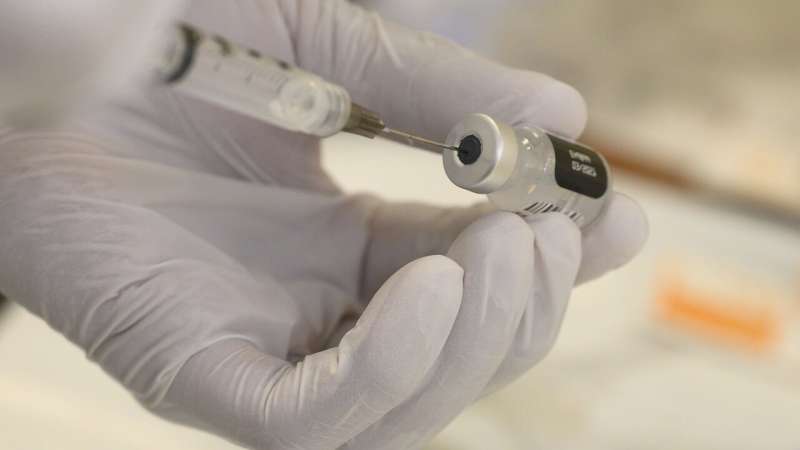Understanding Men's Experiences with Vasectomy: Insights from Reddit Discussions

Exploring men's experiences with vasectomy through Reddit discussions reveals concerns about pain, regret, and long-term effects. This insight underscores the importance of transparent, nuanced patient communication regarding potential risks.
Vasectomy has long been recognized as a reliable, minimally invasive, and largely safe method of permanent contraception. Its advantages are typically highlighted as straightforward and low-risk; however, recent online discussions reveal a more nuanced reality.
In recent years, there has been a notable decline in vasectomy procedures in countries like the UK, even though the efficacy of the procedure remains unchanged. This trend prompts questions about what influences men's decisions regarding vasectomy, especially when they change their minds or encounter complications.
A detailed analysis was conducted on thousands of posts from Reddit’s r/vasectomy and r/postvasectomypain forums, utilizing advanced language processing tools to understand the emotional tone and reported outcomes. This approach aimed to gather insights not just from clinical data but from the lived experiences shared openly in digital spaces.
The predominant emotion expressed in these discussions is fear, with over 70% of posts indicating anxiety about the procedure, post-operative pain, potential regret, and long-term side effects. Men often ask questions like "How painful is it?" "How long does the pain last?" and "Could I regret this decision?" These questions reflect deep concerns about both temporary discomfort and possible ongoing issues.
While many users report positive experiences, a significant minority report persistent pain and regret, sometimes years after surgery. Posts frequently mention post-vasectomy pain syndrome (PVPS), a condition characterized by chronic scrotal pain lasting beyond three months post-surgery. Although PVPS is considered rare by some health authorities, Reddit data suggests it might be more common or impactful than widely acknowledged.
Analysis shows that about one-third of the over 11,000 posts contained the word "pain." Particularly concerning are reports of pain lasting months or even years, with some posts referencing ongoing discomfort more than six years after the procedure. Additionally, around 2% of posts mentioned both pain and regret, indicating severe, life-altering consequences for a small but notable group.
Subreddit dedicated specifically to post-vasectomy pain highlights the severity of these experiences, with most posts describing persistent long-term pain, sexual discomfort, and altered sensitivity. Many users also discuss seeking vasectomy reversal surgery, which appears more frequently than references to other complex interventions, underscoring the distress associated with chronic pain.
This emerging evidence from digital communities raises important questions about how informed consent is currently handled. Terms like "rare" or "low risk" may underestimate the real-life impact on patients, especially as these online narratives provide a candid account of complications not always captured in formal studies.
With the increasing role of social media as a source of health information and peer support, clinicians and researchers should consider these firsthand reports carefully. They reflect genuine outcomes experienced by users, often in a detailed and specific manner, highlighting the need for transparent, nuanced communication about potential risks.
Ultimately, while vasectomy remains a safe and effective contraceptive choice, it is crucial that health providers discuss the potential for long-term pain and regret openly, supported by both clinical data and patient experiences shared online. Recognizing the emotional and physical realities shared in social media can lead to better-informed decisions, improved patient care, and possibly, the development of strategies to reduce chronic post-surgical discomfort.
Stay Updated with Mia's Feed
Get the latest health & wellness insights delivered straight to your inbox.
Related Articles
Innovative Hair Analysis May Enable Early Detection of Amyotrophic Lateral Sclerosis
A pioneering study reveals that single hair strands can detect elemental changes associated with ALS, opening avenues for a noninvasive, early diagnostic biomarker for this devastating neurodegenerative disease.
Reevaluating the Brain Regions Behind Human Consciousness
Emerging research suggests that the brain's ancient regions, like the subcortex and cerebellum, may play a more vital role in human consciousness than the traditional cortex-focused theories indicate, prompting a rethink in neuroscience.
Newly Discovered 'Sixth Sense' Connects Gut Microbes to the Brain in Real Time
Scientists have uncovered a groundbreaking neural pathway connecting gut microbes to the brain, revealing how the microbiome can influence appetite and behavior in real time.
More States Expand Access to COVID-19 Vaccines Despite Federal Restrictions
Several U.S. states are expanding access to COVID-19 vaccines by issuing policies that bypass federal restrictions, aiming to improve vaccination rates and clarify availability amid changing federal guidelines.



